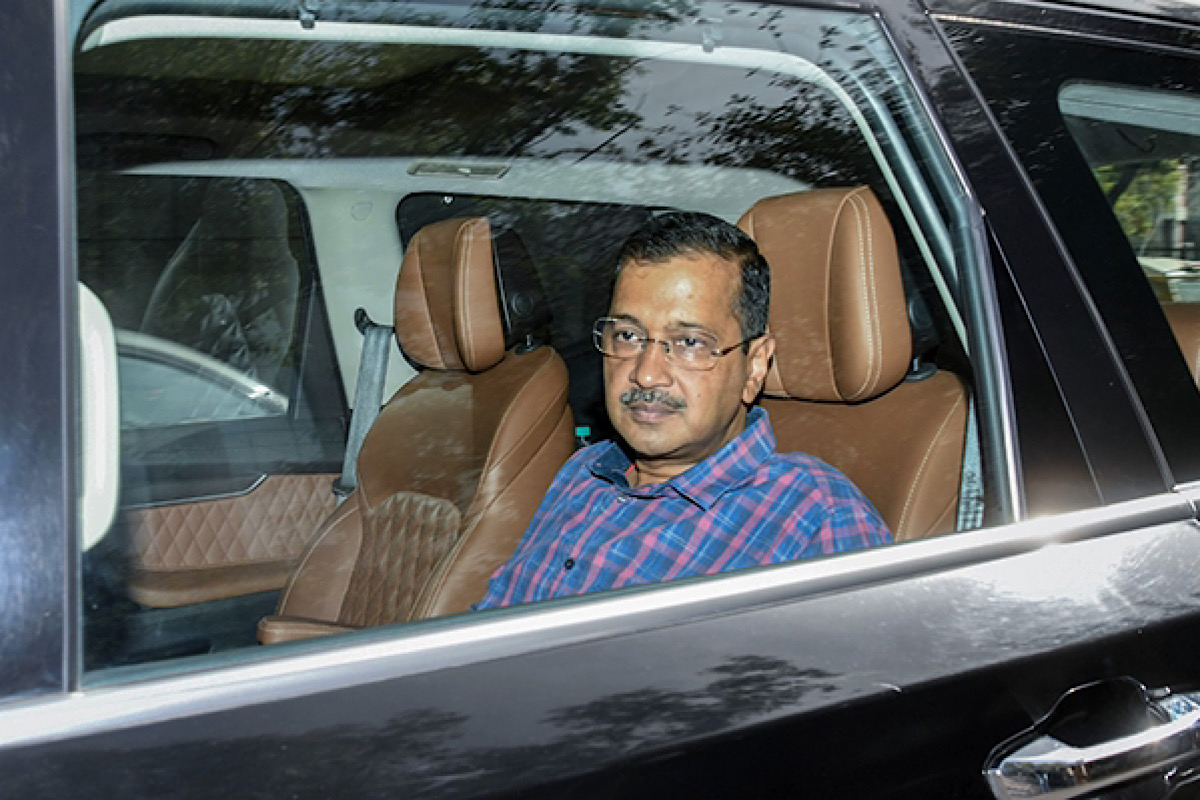ED arrests 2 Hizbul Mujahideen activists over charges of narco-terrorism in J-K
The arrested narco-terror accused have been identified as Arshad Ahmed Allie and Fayaz Ahmed Dar.

Delhi chief Minister Arvind Kejriwal (photo ANI)
Delhi Chief Minister Arvind Kejriwal was given multiple opportunities to cooperate with the investigation in the money laundering case relating to the liquor policy irregularities but he intentionally chose to disobey the summons, the Enforcement Directorate (ED) said on Tuesday in its reply filed before the Delhi High Court opposing the the AAP chief’s plea challenging his arrest.
The central probe agency said that it issued nine summonses to the Delhi CM but he chose to disobey them and didn’t join the investigation based on one flimsy ground and another.
The ED accused Kejriwal’s Aam Aadmi Party (AAP) of recieving kickbacks from private vendors and others in the alleged Delhi liquor policy scam.
Advertisement
The agency further claimed that the AAP has commited offence of money laundering through Arvind Kejriwal and the offences thus are covered by section 70, PMLA 2002.
The AAP is a political party comprising of association of individuals registered under Section 29-A of the Representation of People Act 1951, it stated.
The Delhi High Court last week sought ED’s response to Kejriwal’s petition challenging his arrest. In his plea, the AAP chief also challenged the trial court’s decision to send him to ED custody.
However, the court refused to grant any immediate relief to the Delhi CM and posted the matter for further hearing on April 3.
During the hearing, bench of Justice Swarna Kanta Sharma stated that the probe agency has to be granted an opportunity to file a reply and declining this opportunity would amount to the denial of fair hearing as well as violation of one of the principles of natural justice i.e., audi-alteram partem, which is applicable to both the parties and not one.
The court further said that any release order from custody will amount to enlarging the accused/petitioner/ Arvind Kejriwal on bail or interim bail, as an interim measure.
Justice Swarna Kanta Sharma further stated that this Court remains conscious of the fact that to reach a conclusion as to whether the petitioner/Arvind Kejriwal herein is entitled to immediate release or not, this Court will necessarily have to decide the issues raised in the main petition, as those issues are the edifice of arguments of the learned senior counsel for the petitioner seeking immediate release of the petitioner.
Kejriwal was arrested by the Enforcement Directorate on March 21 from his residence. On Monday, Delhi’s Rouse Avenue Court sent him to judicial custody till April 15.
(With agency inputs).
Advertisement